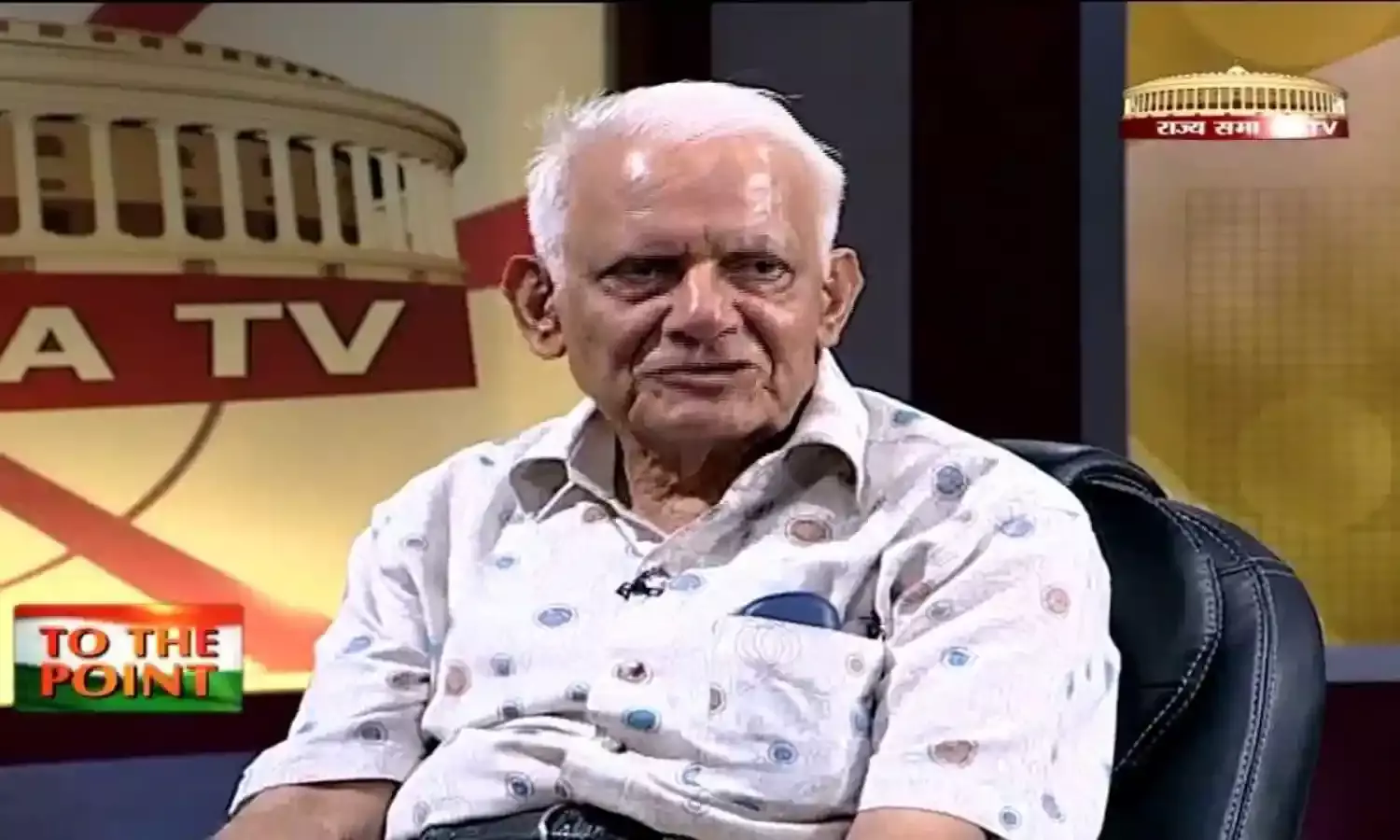Professor C.P. Bhambri, the Quintessential Marxist
A Tribute

I was familiar with the name of Professor C P Bhambri during my pursuit of political science honours course while studying BA in a small college in Odisha. His text book on Public Administration was recommended by our college teachers as part of the catalogue of books for our study and understanding of the theory and practice on public administration. In fact that book was a read by generation of students who studied the subject of political science at undergraduate level and for various examinations.
So when I joined Jawaharlal Nehru University for MA in political science and came to know that Professor Bhambri was one of the faculty members I could not believe.
In JNU he taught us "Politics in India" in the last semester of MA and I can never forget his first lecture in which he outlined the two methods to study social science- Marxist and Non-Marxist- that improved my understanding of social sciences tremendously.
At that age I was indeed impressed by that short and succinct analysis which made a deep impact on my mind and continues to do so even now in my limited engagements with study and research.
His conviction flowing from his Marxian understanding of politics was very strong. It was evident in one of his lectures in our class in CPS located in down campus. When my fellow classmates Vanita Sinha, now Shastri, and currently Dean of Social Sciences in Ashoka University, entered the lecture room a few minutes after Prof Bhambri had commenced his lecture he paused and gravely said "Once I enter the class nobody should enter after". When she apologetically said she was late because of another class the Professor responded cryptically, “I am equally class conscious". That summed up his unwavering commitment to Marxists approach.
But he was not dogmatic and remained open to ideas and sustained the culture of interrogation characteristic of a well cultivated academics. Vanita wrote, "I have fond memories of Prof. Bhambri, he was my MPhil thesis advisor. At first I was scared to have him in that role, him being a known Marxist and I, who was not one. But ideological issues never came up and his supervision of my thesis was very smooth sailing. He was a good scholar and teacher. A role model for his work ethic." His open minded approach was evident from one of his numerous articles on contemporary issues. One such insightful piece "India: The Dalit Question as Answer to Hindutva" published in Communalism Watch on February 1 2016 underlined a point.
He observed, "The Dalit leadership understands that the complex Indian caste question is linked with history and political economy of India. The Dalit movement alone cannot deal with the challenge of “caste” without forging alliances with other like-minded, progressive, secular, intellectual, social and political forces of the country."
In another article "India: Sangh Parivar’s Wish - Education for Hinduisation" published in the Tribune on March ,2016 he wrote about universities where free atmosphere of debate and dissent give rise to a blooming of thousand floors. It yet again underscored his open minded approach even as he remained wedded to his own worldview.
Much after I left JNU and while serving President K R Narayanan Prof Bhambri called me once. He wanted some material for a report he was working on.
When JNU faced relentless attacks from the present government in 2016 and some students faced sedition charges he emerged as one of its staunch defenders. Expressing deep anguish he wrote, "...JNU has been asked to defend its "nationalist" credentials before the RSS-led Sangh Parivar and its affiliates who claim to be the champions of Hindu Rashtravad and patriotism", And added, "The Hindutva project of education as defined and interpreted by the ideologues of the Sangh Parivar cannot be pursued under the present university system which has been nurtured on the basis of values enshrined in the Constitution of democratic, liberal, secular, Republic of India".
Noting that "conflicts on the campuses are nothing new" he referred to the polarisation and "anti-Vietnam" war protests in the USA during the 1960s and 1970s, and the revolt in the Paris campus in 1970. Healso recalled philosopher Jean Paul Sartre who in the context of the campus revolt in Paris had observed that campuses would play a transformative role. He further added, "Neither the US nor the French government declared the students "anti-national". Democracies grow only in a free atmosphere of debate and dissent but the BJP Government in power does not consider universities as centres of ideas, where a hundred different flowers bloom."
His legacy rooted in such worldview would inspire generations to defend the idea of India and the idea of JNU. Long live Professor C P Bhambri.



